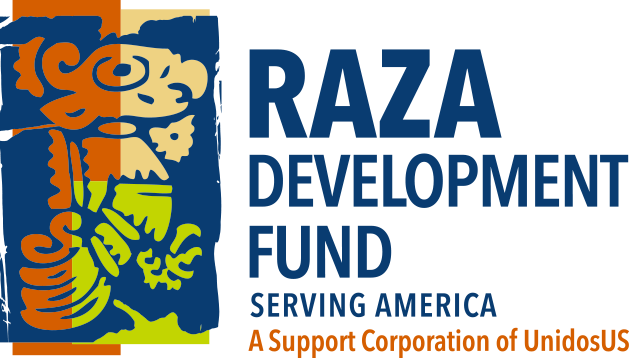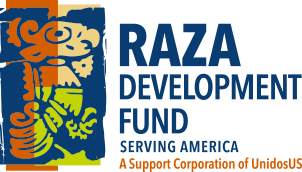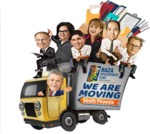RDF Lends Support to UnidosUS Affiliates
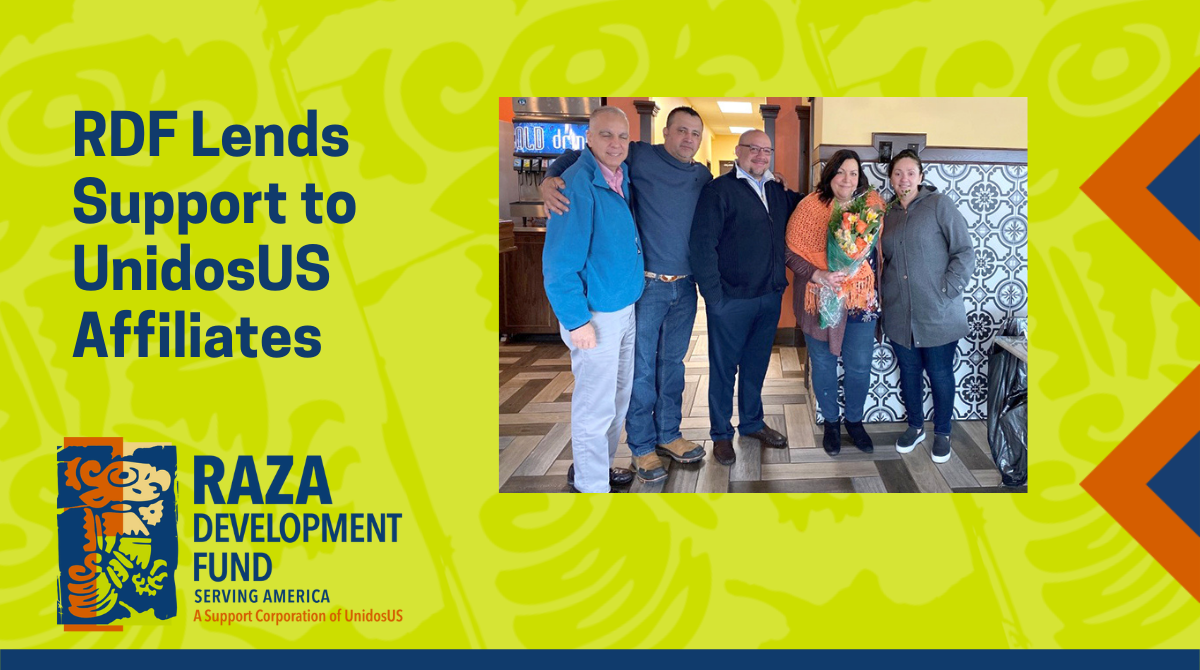
The pandemic has exacerbated longstanding issues for organizations serving under-resourced areas. In our commitment to our communities, the Raza Development Fund strives to support nonprofits through these challenges to come out stronger.
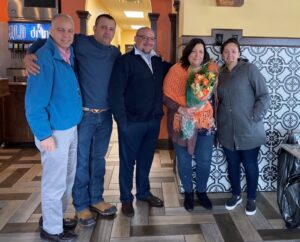
As a support organization of UnidosUS, RDF has sought to fill this need during and beyond the pandemic. In May of 2020, RDF brought together a select pool of talent to support UnidosUS affiliates and launched the Affiliate Support Program (ASP) initiative – aimed at empowering affiliates to better understand their organizational dynamics (e.g., governance, program-service financial flows, information streams, and community positioning) and unique value proposition to their constituents.
“We are beyond grateful to have received support from RDF through the Affiliate Support Program. They have a deep understanding of the challenges Latino organizations like HOLA Ohio face,” says Veronica Isabel Dahlberg, HOLA Ohio’s Founding Executive Director. “Thanks to the outstanding technical support they provided, we were able to achieve conventional financing for our Hispanic Community Center, a dream that will soon become reality for our growing Latino community in northeast Ohio.”
The Problem
If the COVID-19 situation has driven anything home, it’s that local nonprofit stakeholders and enterprises are the “first responders” and have unparalleled insights and trust with those they serve. Equally evident is the acute need for capacity-building, expertise, and supporting resources to help these very same organizations do more than survive but thrive in serving local constituents in ways that the government or private sector cannot do.
Unfortunately, nonprofits led by and serving communities of color are often undercapitalized, under-resourced. They may lack the expertise to help their organizations rise to the level of need in their communities. UnidosUS, the largest Latino advocacy and human service organization in the nation, supports an affiliate network of largely Latino-led and serving community-based organizations through programs, access to funding, networking, and training at annual conferences, convenings, and webinars. Despite this level of support, the pandemic shed light on many gaps in organizations, and it became clear there was a need for a more targeted solution.
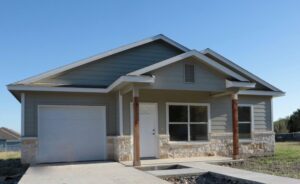
For example, Neighborhood Housing Services of San Antonio (NHSSA), has felt the economic effects of the pandemic related to their mission – providing affordable housing opportunities for Latino and underserved communities.
“We’re in a very hot housing market, which makes it difficult for nonprofits to compete, so having access to quick low-cost money allows us to be more competitive in the marketplace,” says Chris Sanchez, NHSSA’s Executive Director. “You got to love what you do every day because running a nonprofit organization is not easy work and every day it seems like new challenges come at you.”
Fortunately, RDF was able to help NHSSA by providing financing to expand their affordable housing rehabilitation program capacity from four single-family affordable homes annually to a capacity to rehabilitate four per quarter.
“Having wonderful partners like Raza Development Fund I knew that we needed a national partnership of this caliber and you guys showed up at my front doorstep. It was really something that we needed, it was a missing piece, so hopefully now that we’ve got this line of credit in place, we can capitalize on it.” Chris adds.
RDF’s Solution
The Affiliate Support Program aims to help nonprofits answer critical questions about their organizations, leading them to using practical assessment tools and an interactive approach that compels them to explore their program and service quality, efficiency, and sustainability. While some of these business sounding techniques are often seen as antithetical to the nonprofit world, it is an essential part of every nonprofit’s financial stewardship directive. In this context, nonprofits can place grants into broader sustainable funding models, including social capital, market-driven strategies, and investment opportunities. It’s important to recognize that nonprofits are in the business of helping people while also needing to operate with continuity and intentionality. As such, questions used by their for-profit counterparts may be relevant to ask themselves daily:
- What businesses are you in?
- Are those the right businesses? And how do you know?
- Do you understand your financial, operational, and strategic position in the larger marketplace?
- Can others better (or more economically) serve the same clients?
- Do you have the necessary resources and expertise to deliver high-quality, impactful, sustainable services?
- Are you connected to your community stakeholders from an equitable position where they understand your needs and can support you in a manner that allows your organization to grow and be effective?
- Do you have the capacity and resources to explore new initiatives that can take your organization to the next level?
- What return or compelling value proposition are you offering donors or investors?
- How do you define and measure success?
ASP helps nonprofits answer these questions through a strategic, interactive, collaborative consulting approach with an assessment that includes financial and operational diagnostics. The assessment, along with virtual or in-person interviews with staff and boards, aims at helping affiliates to identify and work toward one to three enterprise-level changes. Examples include:
- Diversifying revenues by assessing new income streams or deepening existing ones
- Methodically exploring new strategies that leverage organizational positioning
- Re-envisioning organizational programming in support of shifting community needs or demographic changes through strategic planning engagements involving stakeholder outreach
- Profiling ASP participants to potential and existing funders
- Helping assess and fund project financings
- Providing tools such as financial and operational dashboards that help improve communication and increase engagement between leadership teams, boards, and donors
 All ASP engagements help client organizations make informed decisions such as stabilizing and growing, or even reducing / eliminating, organizational programs while exploring innovations to achieve long-term community impact and enterprise sustainability.
All ASP engagements help client organizations make informed decisions such as stabilizing and growing, or even reducing / eliminating, organizational programs while exploring innovations to achieve long-term community impact and enterprise sustainability.
In the ASP program’s next phase, UnidosUS, in collaboration with RDF, is exploring the expansion of the program to include much-needed capacity grants and loans to a select group of affiliates undergoing transformational changes that will expand their financial impact on their organizations and social impact in the communities and people they were created to serve.
We are excited to continue to help take these organizations to the next level!
